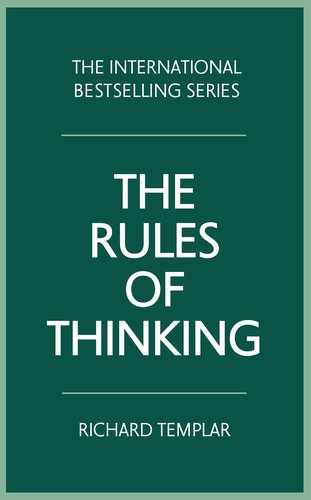The world is full of people and organisations who want you to do or believe what they tell you. From advertising campaigns to fake news, we’re all surrounded by manipulative information intended to push us into buying this tin of beans, listening to this music, wearing these clothes, voting for that candidate.
I don’t know about you, but I don’t much care for being told what to do, and even less for being told how to think. I like to make my own decisions, form my own views, thank you very much.
Then again, I do have to buy tins of beans, and wear clothes, and indeed I choose to listen to music and to vote. And some of those messages that I read or hear or see online do sound quite appealing. Maybe they really are as good as they seem – are they? How on earth do you gauge whether you’re hearing fake news or being sold false promises?
By asking some pertinent questions is how. You think for yourself these days, remember, so be conscious that everyone is selling you their product, their ideas, their beliefs for a reason. You need to know what that reason is before you can decide if you want what they’re pushing. So don’t be a sucker, do some serious thinking before you commit yourself. Remember Rule 3? This is the critical thinking application of that Rule.
Start by asking yourself who benefits and how from the information you’re being given. If you’re looking at an advertisement, it’s probably obvious who’s behind it. But what about broader messages? Is that campaign telling you to wear a cycle helmet being funded by the health service or by helmet manufacturers? Do the people telling you how dangerous unpasteurised milk is have a political agenda? The answer doesn’t necessarily invalidate the information, but it does shed more light on it.
Some people will try to fool you by giving you partial information and hoping you won’t notice. My wife remembers being told years ago by a nurse that a certain percentage of pregnant women who eat soft-cooked eggs contract salmonella, which can harm the unborn child. Even if that percentage is pretty low it would probably still deter you – it’s meant to. But hang on, there’s relevant information missing from that data. Did you notice? Of course you did. You also need to know how likely it is to harm your child. If their mother contracts salmonella, how many babies are actually harmed – 1 in 10? 1 in 100,000? That has to make a big difference. You might still decide that any risk is too high, and I’m not advising you to eat soft-boiled eggs if you’re pregnant – I’m advising you to think for yourself. Including questioning why this information isn’t included. There might be a very good reason, but if you’re serious about being a Rules thinker, you’ll want to know what it is.
Keep an eye out for emotive language too. Organisations, political parties, advertisers, they do like to use emotionally charged words and images to persuade you to think their way instead of your own. Guilt trips, fear, emotional blackmail – learn to spot when they’re used against you. Charities will almost always show you a picture of an attractive starving child, or a cute furry animal.31 Even if it’s a good cause and you choose to give to it, you should still be aware that you’re being manipulated.
EVERYONE IS SELLING YOU THEIR PRODUCT, THEIR IDEAS, THEIR BELIEFS FOR A REASON
_________________________
31 I’m never sure if this is ethical – there’s an interesting question to think about.
